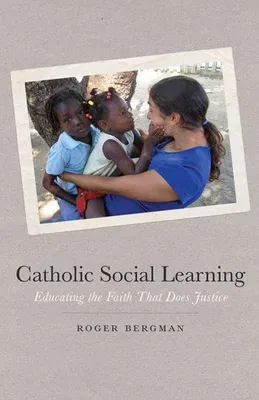The canon for Catholic social teaching spreads to six hundred pages, yet
fewer than two pages are devoted to Catholic social learning or
pedagogy. In this long-needed book, Roger Bergman begins to correct that
gross imbalance. He asks: How do we educate ("lead out") the faith that
does justice? How is commitment to social justice provoked and sustained
over a lifetime? To address these questions, Bergman weaves what he has
learned from thirty years as a faith-that-does-justice educator with the
best of current scholarship and historical authorities. He reflects on
personal experience; the experience of Church leaders, lay activists,
and university students; and the few words the tradition itself has to
say about a pedagogy for justice.
Catholic Social Learning explores the foundations of this pedagogy,
demonstrates its practical applications, and illuminates why and how it
is fundamental to Catholic higher education. Part I identifies personal
encounters with the poor and marginalized as key to stimulating a hunger
and thirst for justice. Part II presents three applications of Catholic
social learning: cross-cultural immersion as illustrated by Creighton
University's Semestre Dominicano program; community-based service
learning; and the teaching of moral exemplars such as Dorothy Day, Rev.
Martin Luther King Jr., and Archbishop Oscar Romero. Part III then
elucidates how a pedagogy for justice applies to the traditional liberal
educational mission of the Catholic university, and how it can be put
into action.
Catholic Social Learning is both a valuable, practical resource for
Christian educators and an important step forward in the development of
a transformative pedagogy.

